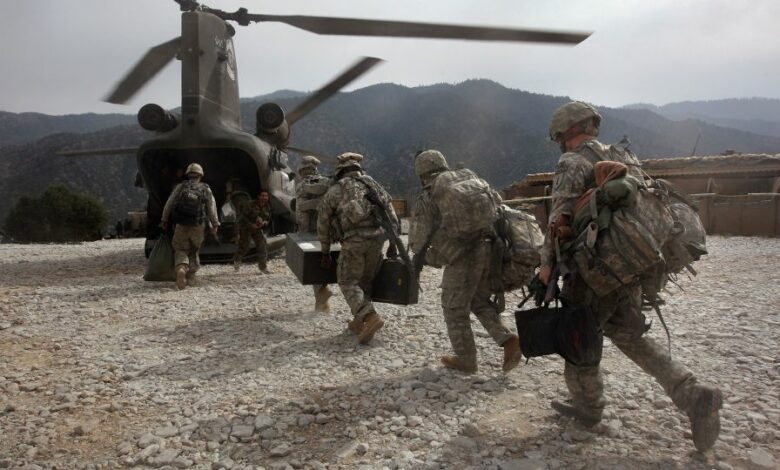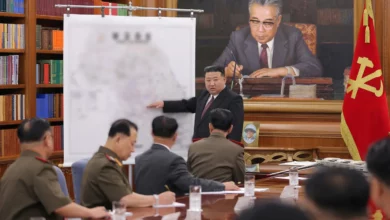
“I’m not super optimistic that we are going to learn our lessons … learning lessons is not in our DNA in the United States, unfortunately,” John Sopko, the Special Inspector General for Afghanistan Reconstruction, told reporters at a Defense Writers Group event on Tuesday.
Sopko spoke with reporters the day after a SIGAR report was published outlining why Afghan security forces collapsed as the Taliban swept through the country in 2021, after years of the US focusing on equipping and training them.
The report comes as lawmakers in Congress have made clear they plan to hold additional hearings and further investigate the US withdrawal from Afghanistan.
Sopko emphasized on Tuesday that Ukraine and Afghanistan are totally different countries and cultures. He added, however, that there are multiple opportunities for the US to apply lessons learned from Afghanistan to the war in Ukraine as the US continues assisting the country’s stand against Russia.
One of those is to establish oversight early, which appears to already be happening. The Pentagon’s inspector general told lawmakers on Tuesday that the Defense Department inspector general has completed five Ukraine-related oversight projects since Russia’s invasion of Ukraine began, and some 20 more audits are either planned or currently ongoing.
Officials also need to learn how to coordinate the different countries and agencies operating in Ukraine more effectively than they did in Afghanistan, Sopko said, and ensure that they don’t have unrealistic timelines. Ultimately, he said officials need to really understand the country they’re working in and their needs.
“Early on, we realized that we were building things in Afghanistan that the Afghans didn’t need, didn’t want, didn’t even know they were getting and couldn’t sustain,” Sopko said. “We have to make certain we go into Ukraine and listen to the Ukrainians on what they need, what they want, what they can sustain.”
But Sopko added that while he and his team have been approached by other countries to speak to them about their reports, and are aware of European countries doing their own studies, they have “not been approached by DoD, State, or USAID at a high level or official level to talk about any of these lessons we’ve learned.”
“How many people want to talk about Afghanistan at the Pentagon? How many people want to talk about Afghanistan at State, or AID? Not many,” he said. “And you know this report, with its companion report, is the only official US government report that’s public … on the 20 years spent in Afghanistan. To me, I’m very glad that we were able to do this, but I’m an inspector general. You would think the Department of Defense or Department of State or USAID or the National Security Council would have come out with something official on the 20 years there.”
He added that the Pentagon said it is working on an internal report regarding Afghanistan, but “how many years are we going to wait for that? I think the American people and Congress at least have a right to know what happened.”
The report said that while SIGAR issued an interim version of the same report in May 2022, the Defense and State departments “declined to review that interim draft, denied us access to their staff, and mostly declined to answer requests for information.”
Included in Mondays’ report is a letter from a defense official earlier this month which says the Pentagon disagreed with SIGAR’s “suggestion that the United States did not adequately communicate to the Afghan Government its plans regarding the withdrawal of US forces.” The letter signed by Rebecca Zimmerman, the Deputy Assistant Secretary of Defense for Afghanistan, Pakistan, and Central Asia, also says that her staff met with SIGAR after the interim report was published and offered “to continue to meet regularly … but the author did not follow up.”
But on Tuesday, Sopko doubled down, telling reporters that lawmakers were “outraged” over Defense and State’s lack of cooperation.
“When we talk about the lack of cooperation by DoD, we’ve got emails, and we’ve got memo traffic to support everything we said about their lack of cooperation,” Sopko said. “I know one nameless, faceless bureaucrat in the Pentagon said, ‘Oh, well, somebody came over once.’ No, no, we have the paperwork.”
The report released this week also provided an itemized list of the $7.2 billion worth of equipment that US forces left behind in the withdrawal, including Humvees, armored combat vehicles, drones, machine guns, sniper rifles, night vision devices and more.
At least some of that was destroyed or rendered unusable by US forces, Sopko said, but “a lot of it wasn’t.”
CNN’s Sam Fossum contributed reporting.




